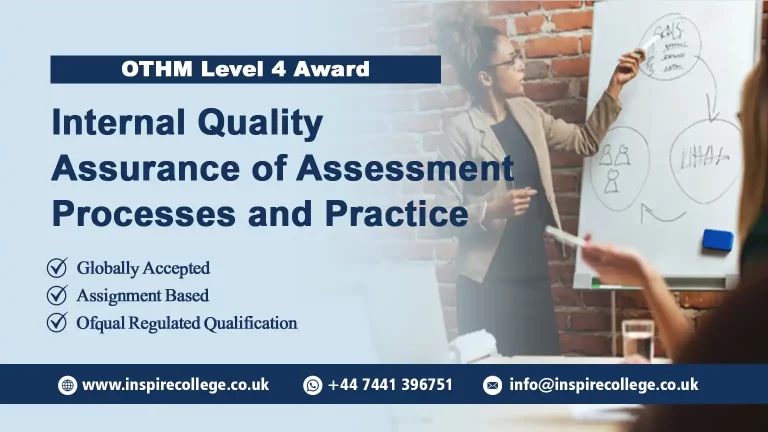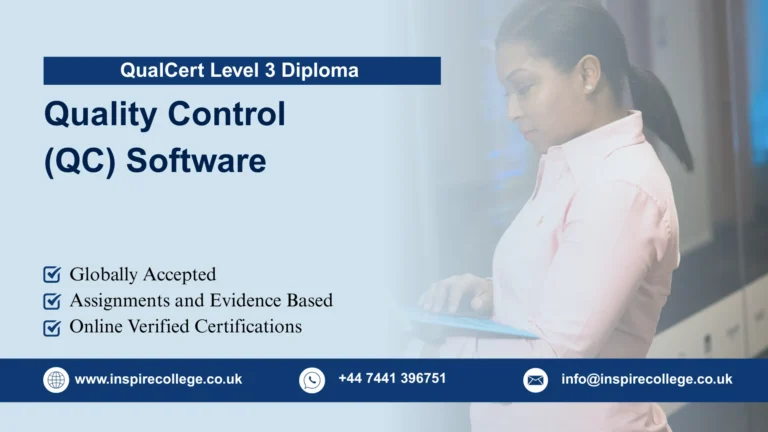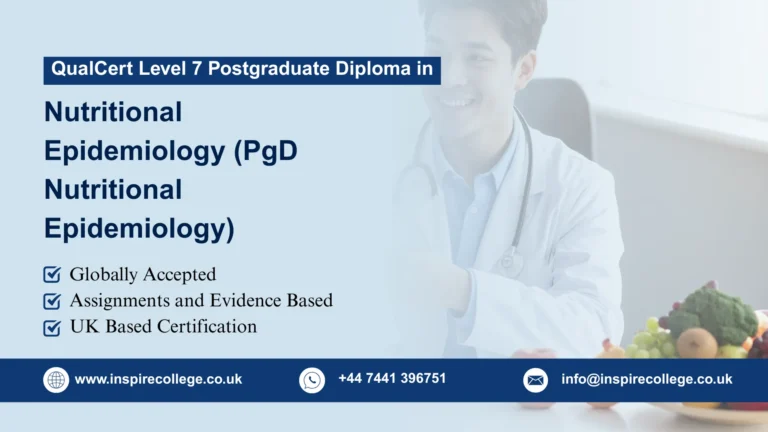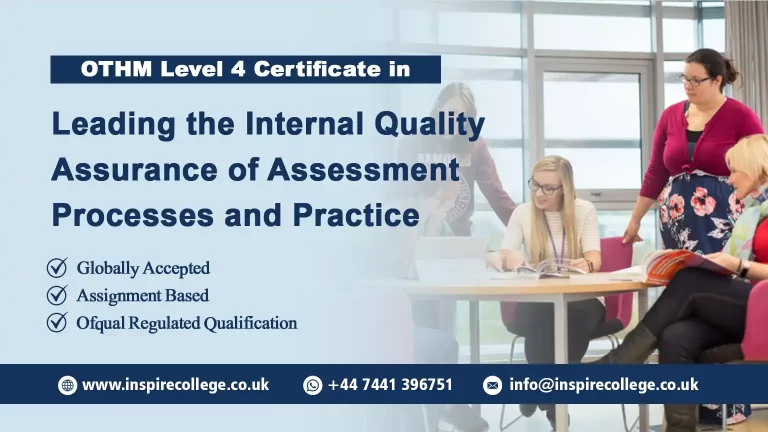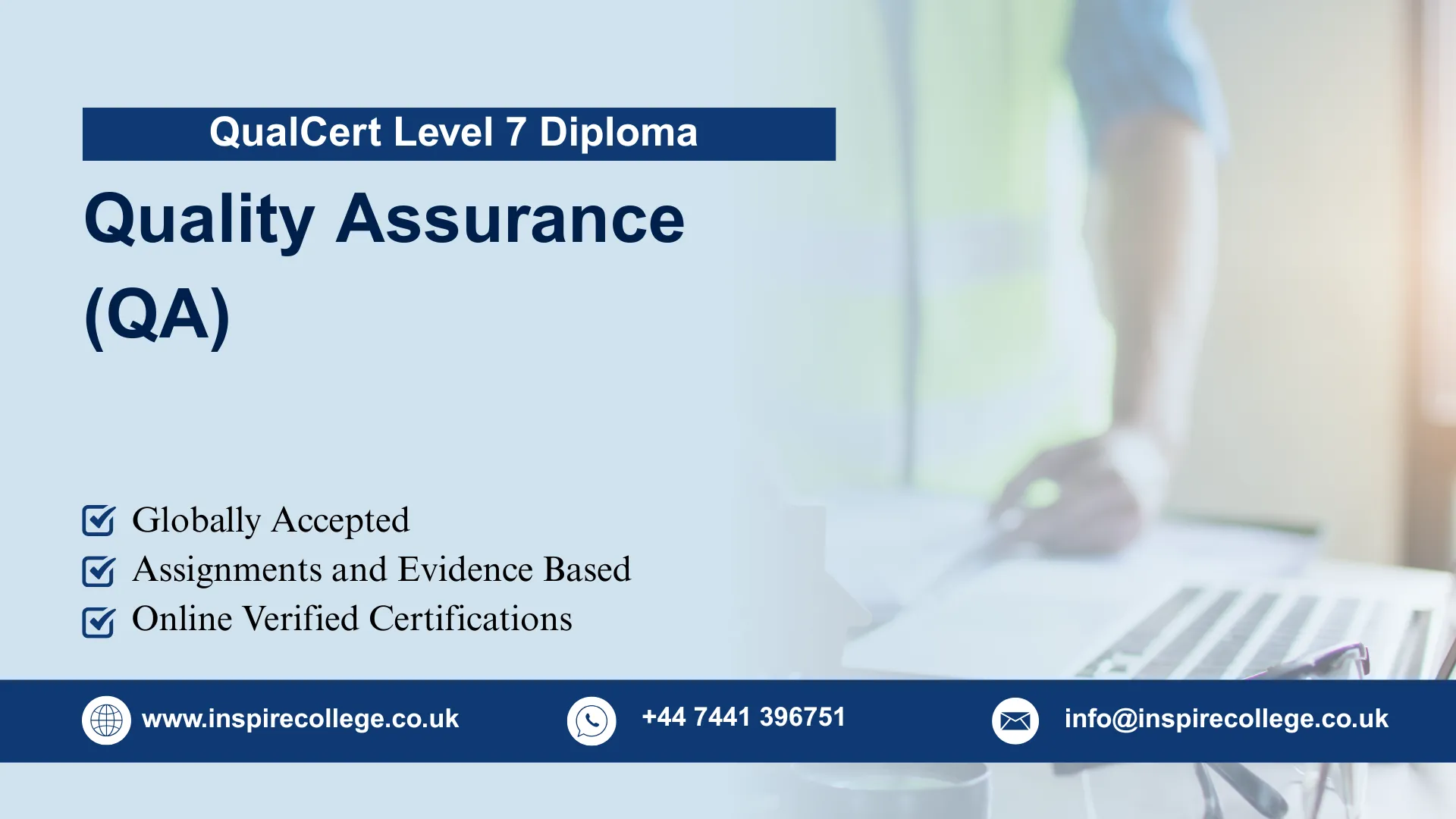
QualCert Level 7 Diploma in Quality Assurance (QA)
In today’s competitive global marketplace, quality assurance (QA) plays a critical role in ensuring that products, services, and processes meet the highest industry standards. The QualCert Level 7 Diploma in Quality Assurance (QA) is a prestigious qualification designed for professionals who aspire to lead, manage, and implement effective quality management systems within diverse organizational environments.
QualCert Level 7 Diploma in Quality Assurance (QA) provides learners with a comprehensive understanding of quality assurance principles, auditing practices, compliance frameworks, and risk management strategies. It equips participants with the expertise to design and evaluate quality processes that drive operational excellence, customer satisfaction, and continuous improvement. Through a balance of theoretical knowledge and practical applications, learners will develop advanced skills in quality auditing, regulatory compliance, performance monitoring, and organizational leadership.
The scope of QualCert Level 7 Diploma in Quality Assurance (QA) extends across industries such as manufacturing, healthcare, IT, education, and service sectors, preparing graduates to make a significant impact in quality management roles. By completing this qualification, learners will gain the ability to analyze complex quality challenges, implement effective quality assurance frameworks, and lead organizational initiatives that align with international standards.
Whether you are an experienced professional aiming to advance your career or an aspiring leader in quality management, the QualCert Level 7 Diploma in Quality Assurance provides the knowledge, practical tools, and professional recognition needed to excel in today’s dynamic business environment.
Admission to the Level 7 Diploma in Quality Assurance (QA) is subject to specific entry criteria that have been carefully established to ensure learners are adequately prepared for the advanced academic and professional demands of this program. These requirements are designed to confirm that applicants possess the appropriate level of education, maturity, and foundational knowledge needed to gain maximum benefit from the qualification.
Age Requirement
Applicants must be at least 21 years of age at the time of enrollment. This ensures that candidates have attained a level of personal and professional maturity suitable for engaging with postgraduate-level studies in quality assurance and management.
Educational Background
A bachelor’s degree or an equivalent qualification in a relevant discipline is required for admission. Suitable fields of study may include business management, quality management, engineering, healthcare, or other related areas where quality assurance practices are integral. This academic foundation ensures that learners have the theoretical grounding necessary to progress to advanced-level concepts in quality assurance.
Professional Experience
While prior professional experience in quality assurance, management, compliance, or a related field is highly desirable, it is not an absolute requirement. Candidates with relevant work experience will be better positioned to apply theoretical knowledge to real-world scenarios, but motivated individuals without direct experience may still be considered if they demonstrate strong academic potential and commitment to the field.
English Language Proficiency
As the medium of instruction for the program is English, applicants must demonstrate strong proficiency in the language. Non-native English speakers are required to provide evidence of competence through recognized qualifications such as IELTS, TOEFL, or equivalent assessments. This ensures that learners can effectively engage with the course content, participate in discussions, and successfully complete written assignments.
By meeting these entry requirements, learners will be well-prepared to undertake the Level 7 Diploma in Quality Assurance (QA) and to develop the advanced skills and expertise required to excel in quality management roles across various industries.
Mandatory Units
The QualCert Level 7 Diploma in Quality Assurance (QA) certification is designed to provide a structured and comprehensive framework for developing expertise in quality assurance. Below is the qualification structure, including the Total Qualification Time (TQT) 1200, Guided Learning Hours (GLH) 600, and 120 Credits associated with the program.
Advanced Quality Management Systems
Strategic Quality Improvement
Leadership in Quality Assurance
Auditing and Compliance in QA
Data Analytics and Process Optimization
Global Quality Standards and Best Practices
The QualCert Level 6 Diploma in Quality Assurance (QA) is designed for professionals who wish to strengthen their expertise in quality management and assurance while preparing for more advanced leadership and strategic roles. This program is ideal for individuals across a wide range of professional functions, including:
- Quality Assurance Managers – Current and aspiring managers seeking to expand their knowledge of advanced QA practices, enhance leadership skills, and effectively manage quality systems within organizations.
- Quality Control Specialists – Professionals working in quality control who want to integrate advanced methodologies, improve processes, and align their practices with global quality standards.
- Compliance Officers – Individuals responsible for regulatory compliance and adherence to industry standards who require a comprehensive understanding of quality assurance frameworks.
- Project Managers – Managers overseeing projects in which quality assurance is critical and who aim to develop skills in risk management, strategic planning, and quality-driven project execution.
- Operations Managers – Professionals managing operational processes who wish to embed quality principles into workflows, driving efficiency, continuous improvement, and operational excellence.
- Process Improvement Specialists – Individuals focused on business process optimization who want to apply advanced QA tools and techniques to achieve higher levels of performance.
- Business Analysts – Analysts who need to incorporate quality assurance insights into assessments and recommendations, ensuring better-informed organizational decision-making.
- Consultants – Quality management consultants who want to expand their consultancy expertise with sophisticated QA strategies and solutions tailored to diverse industries.
- Academic and Training Professionals – Educators and trainers in the field of quality management who seek to update their teaching resources with the latest QA concepts, practices, and global perspectives.
The QualCert Level 6 Diploma in Quality Assurance equips learners with the advanced knowledge, analytical capabilities, and practical skills needed to excel in senior QA functions, lead strategic quality initiatives, and contribute to the long-term success of their organizations.
Advanced Quality Management Systems
This unit introduces learners to the principles, frameworks, and practical applications of modern quality management systems. Participants will analyze a range of quality methodologies, including ISO standards, Six Sigma, and Total Quality Management (TQM), and explore their relevance in today’s dynamic business environments. Emphasis is placed on developing and implementing robust quality control and assurance strategies within complex organizational structures. Learners will also evaluate the impact of quality systems on business performance, operational efficiency, and customer satisfaction.
Strategic Quality Improvement
Continuous improvement is at the heart of organizational excellence, and this unit focuses on the strategic aspects of quality enhancement. Learners will critically assess the role of continuous improvement in achieving long-term organizational objectives and sustainability. Practical methodologies such as Lean, Kaizen, and other problem-solving techniques will be applied to real-world quality challenges. The unit also develops the skills to design, implement, and measure strategic quality improvement plans, using key performance indicators (KPIs) to assess their effectiveness and organizational impact.
Leadership in Quality Assurance
This unit develops the leadership and management capabilities essential for driving quality initiatives. Learners will explore leadership models, decision-making frameworks, and change management principles in the context of quality assurance. The unit emphasizes the importance of fostering a culture of excellence, innovation, and accountability within organizations. Participants will strengthen their ability to lead quality assurance teams, manage projects effectively, and resolve quality-related challenges with confidence and authority.
Auditing and Compliance in Quality Assurance
Auditing and compliance are essential components of modern quality management. This unit provides learners with a comprehensive understanding of internal and external audit processes, as well as strategies for ensuring compliance with national and international industry regulations. Participants will develop the ability to identify non-conformities, implement corrective and preventive measures, and strengthen risk management practices. By mastering auditing methodologies, learners will enhance their ability to safeguard quality standards and build stakeholder trust.
Data Analytics and Process Optimization
The increasing role of technology and data in quality management is the focus of this unit. Learners will explore data-driven approaches to monitoring, analyzing, and improving quality processes. Statistical tools and techniques will be applied to support evidence-based decision-making, while the integration of automation and digitalization will be examined for its impact on efficiency and continuous improvement. Participants will gain the skills to use data analytics not only for identifying trends and root causes but also for optimizing processes across organizational functions.
Global Quality Standards and Best Practices
In this unit, learners will analyze international quality standards and explore their implications for business strategy and operations. Comparative studies of industry-specific practices across regions and sectors will highlight the importance of aligning local quality management systems with global benchmarks. The unit also addresses emerging themes such as sustainability, ethical practices, and corporate social responsibility in quality assurance. By the end of the unit, participants will be able to design strategies that enhance global competitiveness while adhering to internationally recognized quality standards.
Overall Program Relevance
This diploma provides learners with advanced knowledge and practical expertise necessary to excel in senior-level quality assurance roles. Graduates will be equipped to lead strategic initiatives, implement robust quality systems, optimize organizational performance, and contribute meaningfully to the overall success and sustainability of their organizations.
Register Now
FAQs for QualCert Level 7 Diploma in Quality Assurance (QA)

